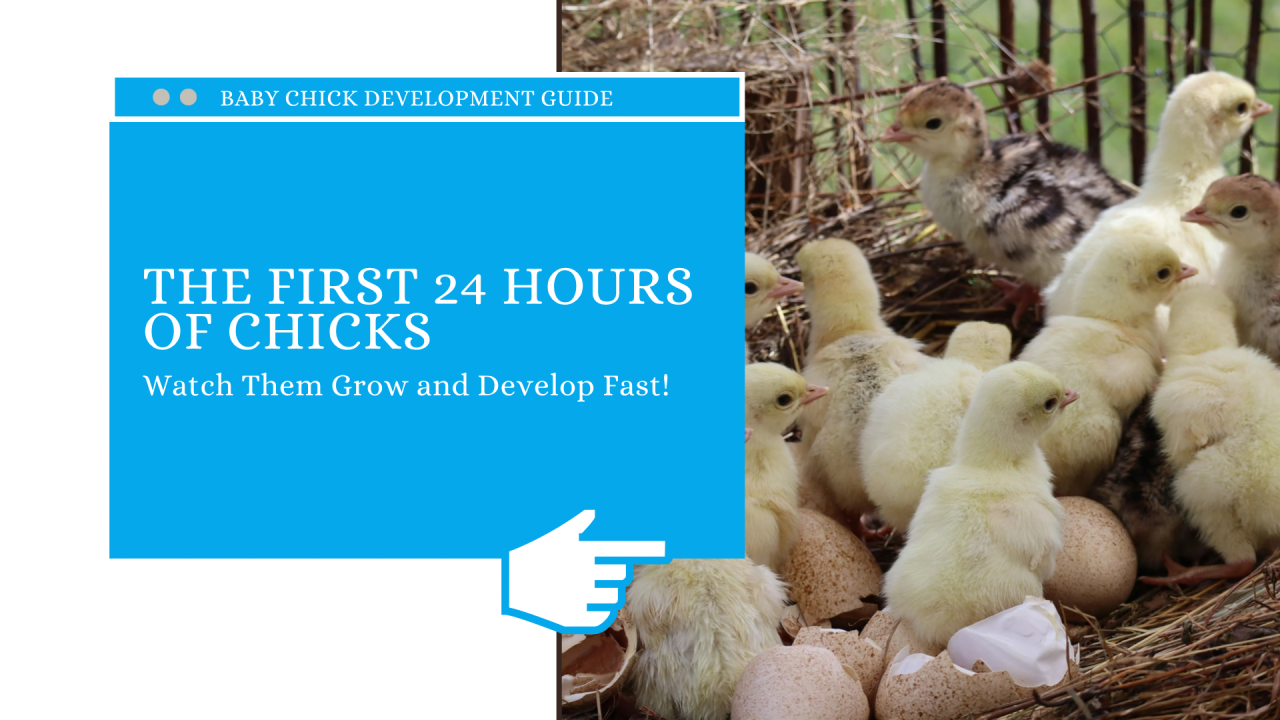
Understanding Baby Chick Development: The First 24 Hours
April 26, 2025
What Happens When Chicks Hatch?
Hatching is an exhausting process. Baby chicks use their egg tooth—a small, temporary structure on their beak—to crack through the shell. This process, called pipping, can take several hours or even an entire day. Once free, chicks appear weak, wet, and fragile, often resting for extended periods to recover from the effort.
Chickens are precocial birds, meaning they hatch with downy feathers, open eyes, and the ability to move. Unlike altricial birds (such as songbirds), chicks are relatively independent from the start but still require warmth and guidance.
The First Few Hours: Rest and Recovery
Immediately after hatching, chicks are vulnerable. If they are with a mother hen, she will keep them warm and protected under her feathers. If you’re raising chicks in a brooder, maintaining a stable temperature of 95°F (35°C) is essential to prevent chilling. Hatchlings rely on residual yolk stored in their bodies for initial nourishment, meaning they don’t need food immediately.
During this period, you’ll notice:
Frequent resting and minimal movement
Soft peeping sounds as they begin to recognize their surroundings
The need for warmth either from the hen or a brooder heat source
When Do Baby Chicks Start Eating?
Although they don’t require immediate feeding, baby chicks start showing hunger signs within 8 to 12 hours after hatching. In nature, a mother hen will lead them to food and water, teaching them how to peck and drink. If you’re raising chicks without a hen, provide access to:
Chick starter feed, a specially formulated high-protein diet
Clean, fresh water, preferably with shallow dishes to prevent drowning
Electrolytes or probiotics (optional) to support early health
It’s important to ensure food is at an appropriate size and consistency to prevent choking and digestion issues. Chicks will instinctively peck at food, but gentle guidance can help them get started.
Key Takeaways for the First 24 Hours:
✅ Chicks rely on residual yolk and don’t need food immediately.
✅ Maintaining warmth is essential for survival.
✅ Rest and recovery take priority after hatching.
✅ Feeding typically begins within 8–12 hours, with chick starter feed and fresh water.
Raising baby chicks from day one is a rewarding experience, but it requires patience, knowledge, and care. Understanding their early development ensures they have the best start in life.





.webp)

.jpeg)
.jpeg)

